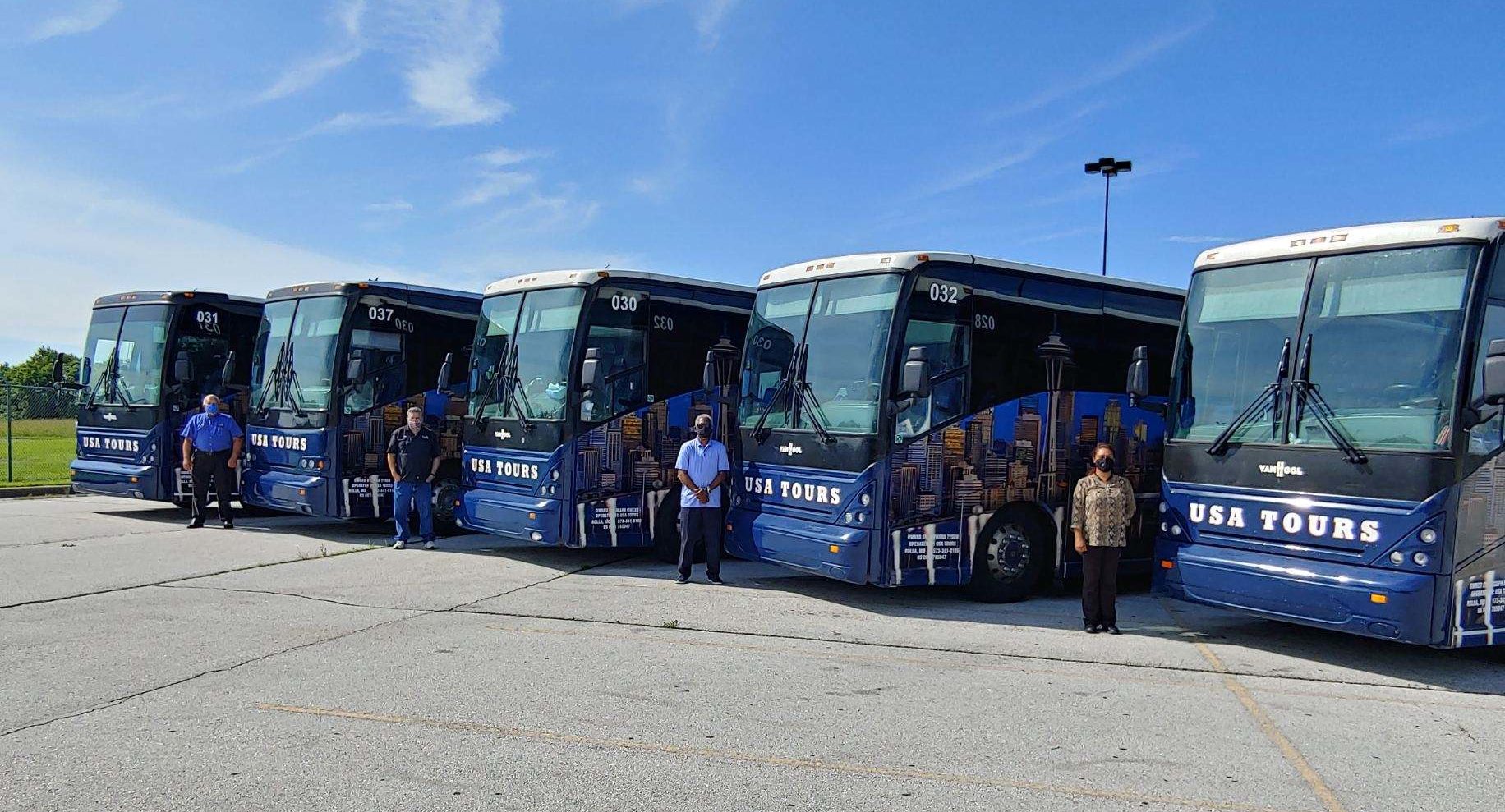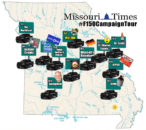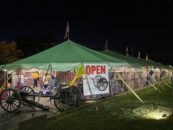Rex Tennyson, operations manager for a small motorcoach company in Rolla, was just gearing up for the busy season when the COVID-19 pandemic hit. As the positive cases began to climb across the country, USA Tours had to scramble to bring out-of-state tour groups back to Missouri before grounding its fleet.
“We had a motorcoach out that had a school group aboard that had just arrived in Orlando, Florida. When the news hit, the school wanted them to return as soon as possible,” Tennyson said in an interview with The Missouri Times. “The driver got his eight hours off and started heading back to Missouri while, at the same time, we drove another driver down halfway to meet them so they could legally make it back.”
“After this, all our trips stopped except for a few trips with the military flying to their next duty station,” he said.
As the first phase of Missouri’s reopening plan winds down, businesses in multiple industries are reopening to customers and experiencing new challenges in the wake of COVID-19. One area that has experienced a great level of disruption is the transportation industry, namely Missouri’s motorcoach companies.
Missouri houses seven motorcoach companies, including USA Tours in Rolla. There’s Heartland Trailways in St. Joseph, Best Transportation in St. Louis, JED Transportation in Hazelwood, and Mid-American Coaches in Washington, just to name a few.
More than 90 percent of the motorcoach industry in America has been furloughed or laid off in light of the health crisis, according to the Midwest Bus and Motorcoach Association (MBMCA). It estimated nearly 36,000 buses sit idle, and the industry supports more than 100,000 employees across various roles.
President Donald Trump’s Coronavirus Aid, Relief, and Economic Security (CARES) Act enacted in March excluded the motorcoach industry from its funding despite pledging resources to airlines, airports, train systems, and Amtrak. Motorcoach operators and employees led a protest in May to advocate for funding — and subsequently received bipartisan support from lawmakers.
Legislators from both chambers, including Missouri Congresswoman Ann Wagner, pledged their support to secure CARES Act funding for the motorcoach industry in letters to congressional leadership.
“The motorcoach industry has been hit by the pandemic especially hard at a time of the year when they typically earn over half of their yearly revenue,” Wagner told The Missouri Times. “I will keep fighting for emergency federal support for this industry which serves not only the public but also enhances our national emergency response apparatus.”
USA Tours, a member of MBMCA, said the industry has collectively requested the addition of “over-the-road bus carriers” to the airline payroll grant program funded in the CARES Act. They are also advocating for inclusion in the $5 billion Loan Guaranteed Fund as well as the expansion of the Payroll Protection Program and the Economic Injury Disaster Relief Loan (EIDL) program in an effort to receive equal support to other transportation systems like Amtrak.
“For nearly two months Midwest buses have sat idling while motorcoach employees have remained at home,” David James, MBMCA president, said. “As America begins to reopen, our economy will need us back on the road to bring people from point A to point B and serve our communities again. Without help from the federal government, buses across the Midwest may never return to the road and our passengers will be stranded without access to the nation’s transportation system.”
Tennyson said his company generally takes small groups on excursions that USA Tours plans and sells from March until November. Despite the lack of business and funding from the federal government, he said USA Tours has received funding through the Payroll Protection Plan, a loan through the Small Business Association that helped businesses to keep their workforce employed during the pandemic.
And while the coaches remain parked, Tennyson said USA Tours employees have stayed busy with a community project, working to restore a historic locomotive in downtown Rolla. The project gives employees a way to use their skills, remain busy, and give back to their community, he said.
EDITOR’S NOTE: For up-to-date information on coronavirus, check with the CDC and DHSS.

Cameron Gerber studied journalism at Lincoln University. Prior to Lincoln, he earned an associate’s degree from State Fair Community College. Cameron is a native of Eldon, Missouri.
Contact Cameron at cameron@themissouritimes.com.



















